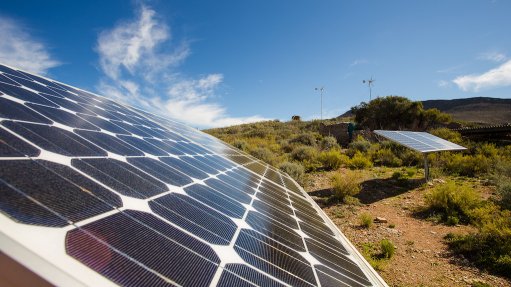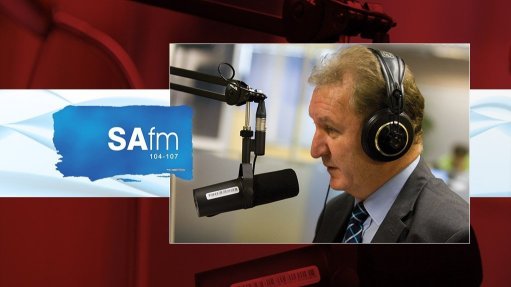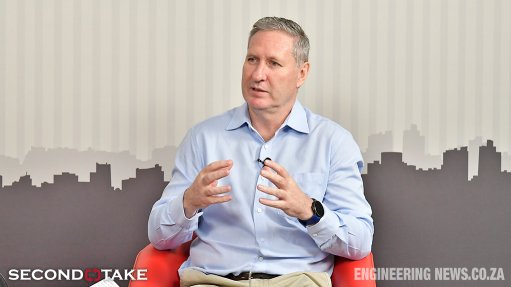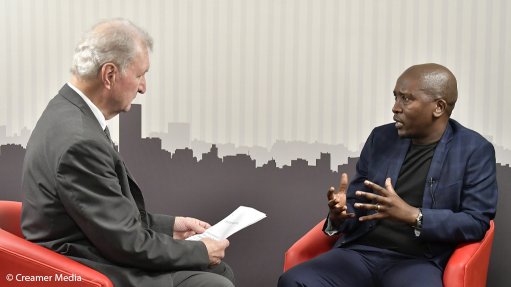Commission addressing gaps, challenges in BBBEE
The Broad-based Black Economic Empowerment (BBBEE) Act, now in its twentieth year, has achieved several successes, but challenges abound, and transformation is not at the requisite level, and the BBBEE Commission has therefore identified several gaps and areas that require addressing, with the Act now up for review.
This was outlined by speakers during the BBBEE Commission’s media engagement session on November 30, which was held to do a deep dive into the Act, explore the challenges and showcase opportunities.
The BBBEE Act was adopted with the objective of transforming South Africa’s economy and promoting inclusion and participation of black people, following discrimination and exclusion during Apartheid.
The BBBEE Commission, an entity of the Department of Trade, Industry and Competition, was established following the amended BBBEE Act to oversee implementation, regulate compliance with the Act, investigate complaints and conduct advocacy and awareness, among others.
While several successes have been achieved, South Africa’s economy remains largely untransformed, with it not reflecting the majority of the country’s demographics, and still unfairly in the hands of a small majority. Moreover, the World Bank and Statistics South Africa consistently showcase the persistent inequality in the country, which is also one of the highest levels in the world.
This, therefore, necessitates the continuation of BBBEE policy, albeit with shortcomings addressed, Government Communication Information System Policy and Media Analysis Division chief director Tasneem Carrim emphasised.
SUCCESSES
BBBEE Commission compliance senior manager Lindiwe Madonsela outlined successes as including facilitating alternative dispute resolution arrangements that translated into over R20-million, which was invested in the National Student Financial Aid Scheme.
There was also the conclusion of memoranda of understanding (MoUs) with 11 strategic partners to advance BBBEE; and an MoU with the South African National Accreditation System, which is said to have assisted in curbing forum shopping that hinders proper BBBEE implementation.
Moreover, there was the development of a BBBEE guide for multinational corporations to promote better understanding of the legalisation, given that there were many misconceptions around this, Madonsela said.
There was also the development of a guide that is indicated to have assisted procurement practitioners to identify invalid BBBBEE certificates/sworn affidavits, which also assists in addressing fronting to some degree.
Further, there was the provision of guidance in legislative reforms that have a bearing on the BBBEE Act.
There was also the preservation of the BBBEE Act through ownership transactions, with 237 transactions aligned to remedial recommendations.
Madonsela also highlighted the role of the Auditor-General in auditing Section 13G reporting by organs of State and public entities.
CHALLENGES & IMPLEMENTATION
Madonsela outlined several trends in the implementation of BBBEE, as well as challenges that have been encountered.
According to the Draft 2022 National Status and Trends on BBBEE Report, overall black management control was at 58.4%, compared with 51% in 2021.
Challenges include data showing that transformation is too slow across the board, in light of there being almost 30 years of democracy and 20 years of BBBEE legislation, and given the extreme inequality, unemployment and poverty that still persists.
Madonsela pointed out that trends from reports submitted to the Commission showed that black ownership averaged 30% in any given year, which was not at all reflective of the country’s population, and this was worse for black-women ownership, which was about 14% on average.
Also, last year, less than 60% of targets were achieved for skill development, enterprise and supplier development, and management control across all sectors, and in 2017, it was less than 50% of the same targets, Madonsela noted.
Further, from the entities on the JSE that did report, there were no 100% black-owned entities, Madonsela informed. She added that this also highlights the issue of low levels of reporting remain a major concern.
Fronting also remains a considerable problem. Madonsela informed that fronting constitutes more than 80% of the complaints handled by the Commission yearly, with various forms of this emerging.
She added that of the 1 273 complaints received from the 2016/17 full year to date, 84% related to fronting, covering ownership, management control, skills development, and enterprise and supplier development elements.
Mining, transport, engineering and construction accounted for the highest number of fronting cases. There were 233 invalid BBBEE certificates recorded.
There had been some mitigation of this, with Madonsela indicating that 763 complaints were closed, while 510 cases/complaints remained active.
There are also challenges in overcoming barriers to finance, with a need to increase availability of BBBEE funding and to make this less cumbersome.
Madonsela also averred that there were declining levels of reporting, which contravened the BBBEE Act and JSE corporate governance rules, and also hindered monitoring of transformation and BBBEE as the requisite evidence was not available.
Comments
Press Office
Announcements
What's On
Subscribe to improve your user experience...
Option 1 (equivalent of R125 a month):
Receive a weekly copy of Creamer Media's Engineering News & Mining Weekly magazine
(print copy for those in South Africa and e-magazine for those outside of South Africa)
Receive daily email newsletters
Access to full search results
Access archive of magazine back copies
Access to Projects in Progress
Access to ONE Research Report of your choice in PDF format
Option 2 (equivalent of R375 a month):
All benefits from Option 1
PLUS
Access to Creamer Media's Research Channel Africa for ALL Research Reports, in PDF format, on various industrial and mining sectors
including Electricity; Water; Energy Transition; Hydrogen; Roads, Rail and Ports; Coal; Gold; Platinum; Battery Metals; etc.
Already a subscriber?
Forgotten your password?
Receive weekly copy of Creamer Media's Engineering News & Mining Weekly magazine (print copy for those in South Africa and e-magazine for those outside of South Africa)
➕
Recieve daily email newsletters
➕
Access to full search results
➕
Access archive of magazine back copies
➕
Access to Projects in Progress
➕
Access to ONE Research Report of your choice in PDF format
RESEARCH CHANNEL AFRICA
R4500 (equivalent of R375 a month)
SUBSCRIBEAll benefits from Option 1
➕
Access to Creamer Media's Research Channel Africa for ALL Research Reports on various industrial and mining sectors, in PDF format, including on:
Electricity
➕
Water
➕
Energy Transition
➕
Hydrogen
➕
Roads, Rail and Ports
➕
Coal
➕
Gold
➕
Platinum
➕
Battery Metals
➕
etc.
Receive all benefits from Option 1 or Option 2 delivered to numerous people at your company
➕
Multiple User names and Passwords for simultaneous log-ins
➕
Intranet integration access to all in your organisation


















